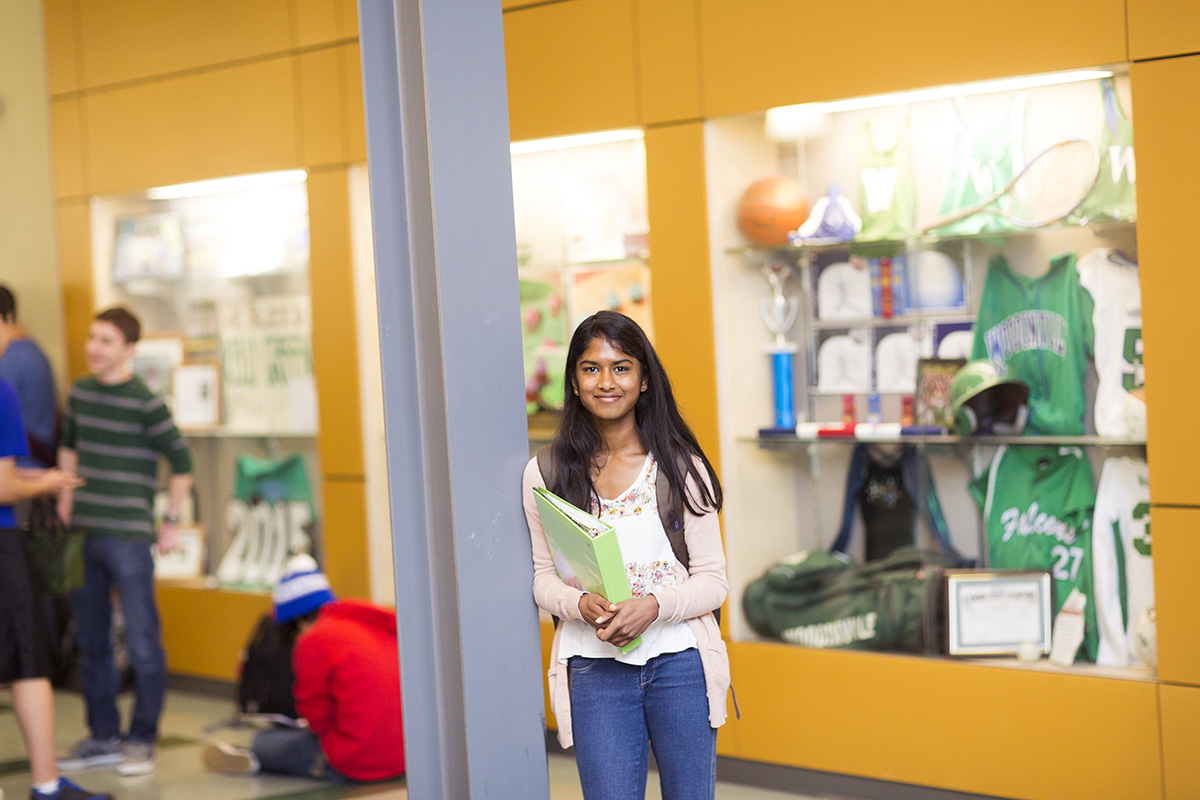Microsoft Philanthropies is a founding sponsor of We Day California and We Day Seattle, stadium-sized celebrations of youth making a difference locally and globally. Sponsoring We Day is one way Microsoft Philanthropies works to empower young people to achieve more for themselves, their communities and the world.
Aishwarya Manoharan is a standout We Day Seattle participant who will attend the April 20 event. The Woodinville High School senior is a student ambassador at a club for the nonprofit Girls Who Code. Last fall, she participated in an event with Chelsea Clinton, sharing her ideas with world leaders about using technology to address global environmental concerns.
- How did you first learn to code?
After signing up for AP Computer Science during my junior year, I was starting to doubt my choice when I discovered that I was one of four girls in a class of 36. But I was surprised to find that Microsoft employees, including a woman, were teaching the class through a program called TEALS. This program brings together volunteers from many tech companies to co-teach the subject with in-class teachers. TEALS helped me discover the real-world applications of what I learned in class every day. With the support of the volunteers and my computer science teacher, I realized how I could use computer science to make an impact on the world.
- When did you realize that you wanted to pursue a computer science career?
I realized during my AP computer science class that code is original. It’s like a piece of art because nobody else uses the same lines or logic to write a program. I found coding as a way to express myself because each line of my code represented how I think. Above all, I loved the feeling of triumph every time my code worked. That was enough to lure me in.
- Tell us about your experiences with Girls Who Code?
I joined like-minded women through the nonprofit’s Summer Immersion Program, while benefitting from perspectives coming from every corner of the world and using those ideas to supplement my own. This showed me how collaboration is essential in STEM (Science, Technology, Engineering, Math) fields. I then signed up as a Girls Who Code student ambassador, where I help young girls with computer science projects weekly at my local library. My goal is to help decrease the gender gap in STEM fields by demonstrating that women can be passionate about STEM, too. I’ve seen the girls grow in their passion for technology and computer science. They see themselves as the ones creating the next app to diminish poverty or building the next rover for space exploration because they see a need to solve our world’s issues.
- Why do you think students should consider learning to code?
Computer science is incredibly versatile. It can combine with any field – fashion, architecture or game design – to make any task easier. This feature is how technology is helping save the world. And anyone can do it. It’s not like physics or calculus equations that need to be memorized, or having to find a single correct answer. It’s all founded on creativity and logic. Code is original and written in accordance with who you are, and that’s the best part!
- How do you plan to have a positive local and global impact in the future?
Next year I hope to major in computer science and explore how computer science can improve sustainability and environmental health. Technology can influence issues on a global scale and I want to play a role in those innovations across the board. Specifically, I aim to focus on how technology can help conservation techniques and reduce our environmental footprint.


